Behind the CV: Reflections on Larry Laudan’s Unconventional Academic Career
El legado de Larry Laudan y el futuro de la epistemología jurídica
Larry Laudan, the pursuit of truth, and the meaninglessness of burdens of persuasion
Laudan’s Meta-Rule for Evaluating Evidence and the Case of Expert Testimony
La Negligencia institucional frente al riesgo epistémico de los sesgos cognitivos en el derecho
¿Fábrica de inocentes? ¡No tan deprisa!
Dudas razonables. Sobre la concepción de estándar de prueba de Larry Laudan
Standards of proof for future crimes and decision theory
The Pursuit of Truth and the the justification in legal fact-finding
Legal Epistemology and Legal Proof
La conducta de las partes como prueba en el proceso civil brasileño
La Prueba de hechos futuros: Consideraciones semánticas y epistémicas para la toma de decisiones
Bayesian modelling of criminal cases as a whole: A philosophical reflection on Dutch case law
Should We Be Convicting People We Don’t Believe to Be Guilty?.
Notourious Facts and Evidential Legal Reasoning
Standards and Methods of Proof: An English Perspective on Della Torre’s Comparative Legal History
The BARD Standard: From Historical Sources to New Challenges. A Comment on Della Torre
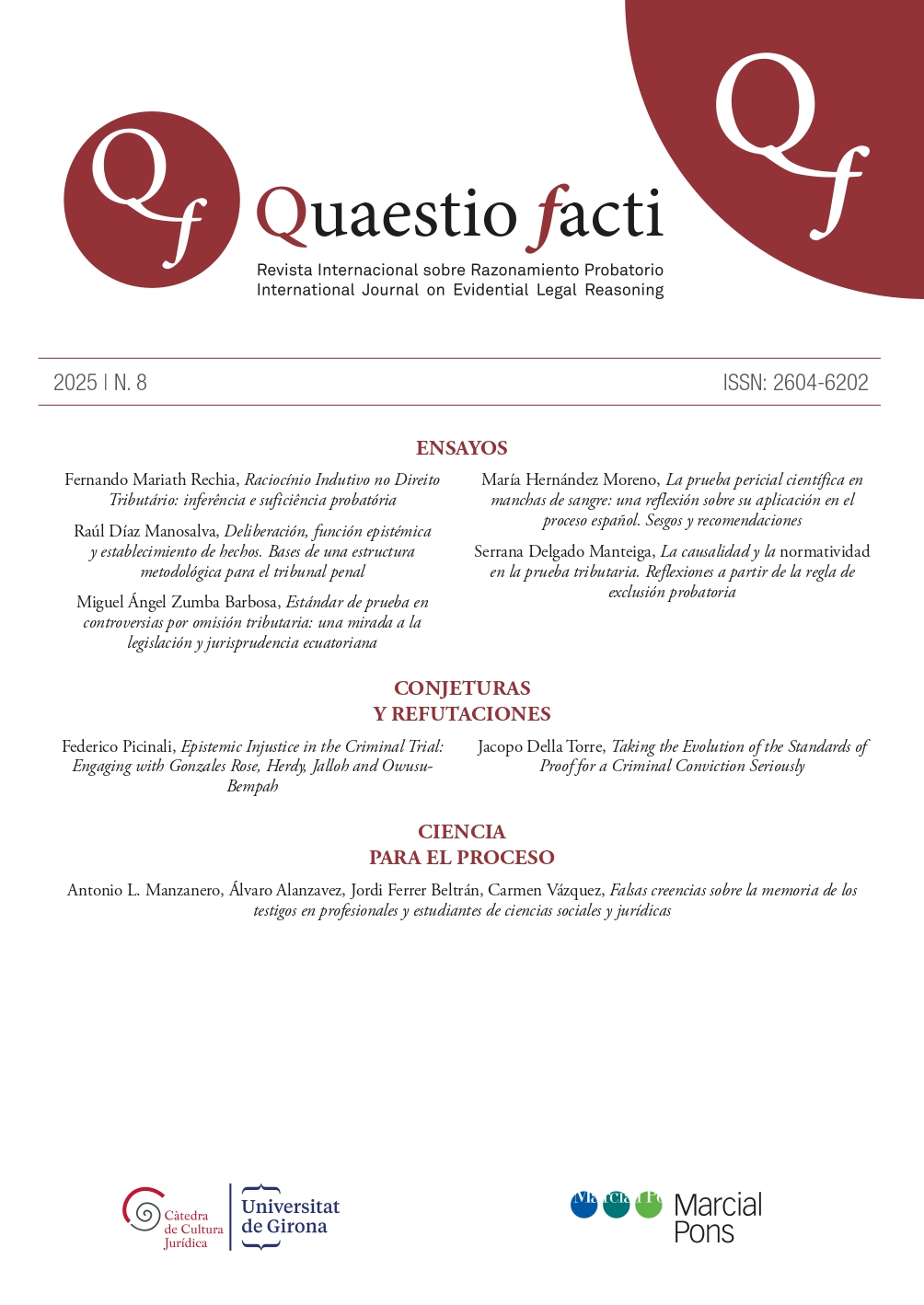
Inductive Reasoning in Tax Law: Inference and Evidentiary Sufficiency
Standard of Proof in Tax Omission Disputes: An Overview of Ecuadorian Legislation and Case Law
Causality and Normativity in Tax Evidence: Reflections Based on Exclusionary Rule.
Taking the Evolution of the Standards of Proof for a Criminal Conviction Seriously
False Beliefs about Witness Memory in Professionals and Students of Social and Legal Sciences.
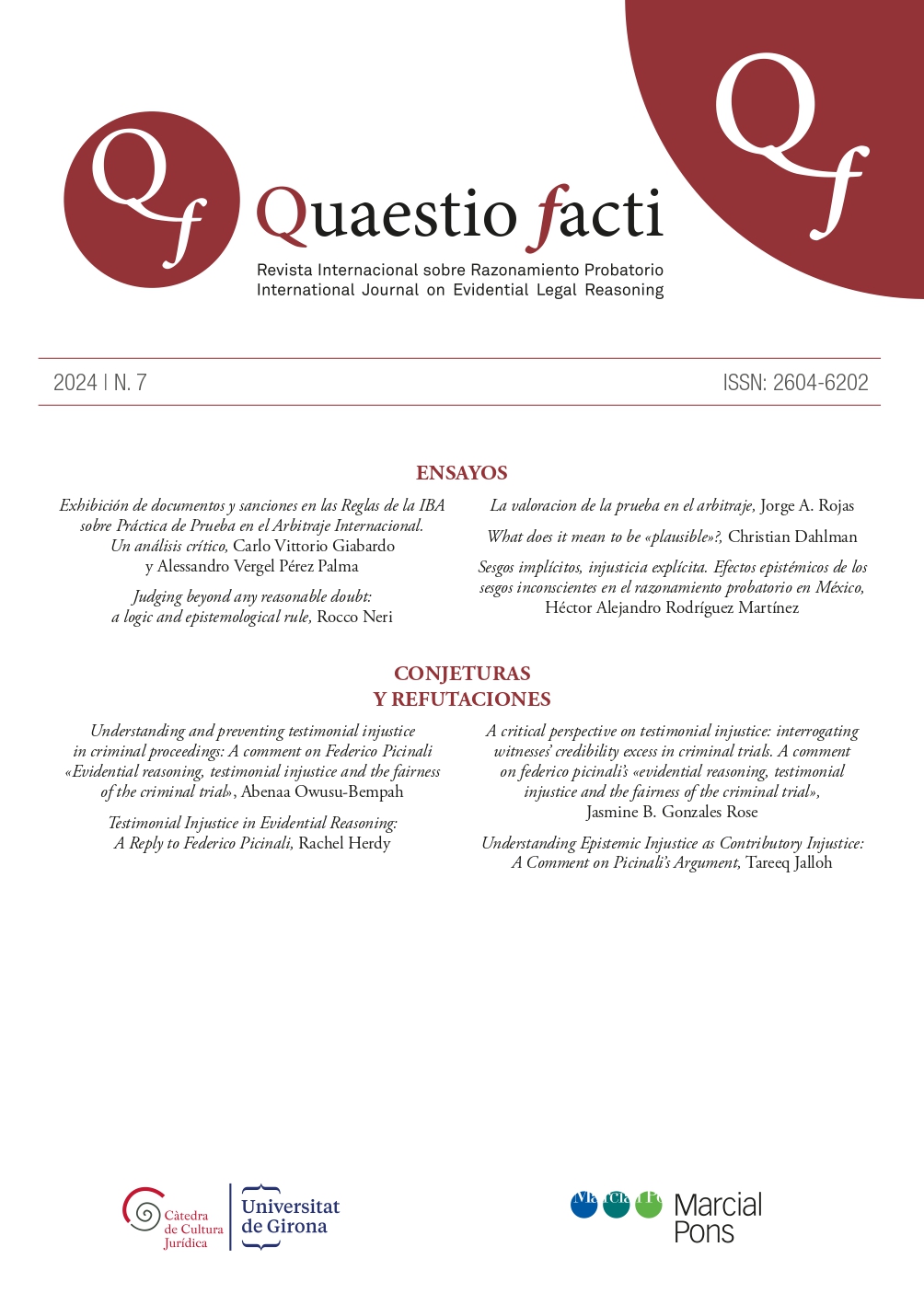
Judging Beyond Any Reasonable Doubt: A Logic and Epistemological Rule
Assessment of Evidence in Arbitration
What Does It Mean to be "Plausible"?
Testimonial Injustice in Evidential Reasoning: A Reply to Federico Picinali
Understanding Epistemic Injustice as Contributory Injustice: A Comment on Picinali’s Argument
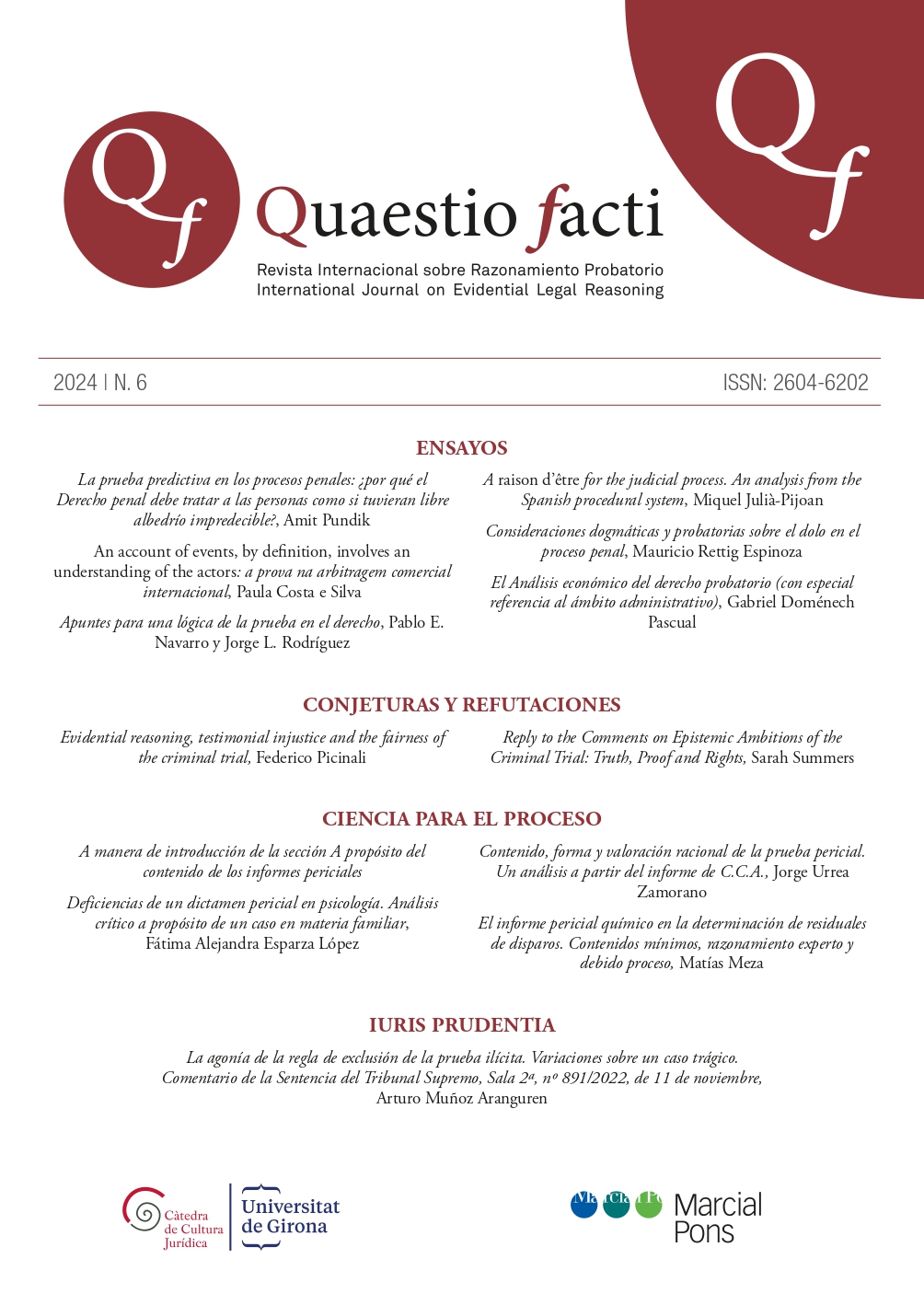
Notes for a Logic of Evidence in Law
A raison d’être for the judicial process: an analysis from the Spanish procedural system
Dogmatic and evidential considerations of mens rea in the criminal process
Law and economics of burdens and standards of proof
Evidential reasoning, testimonial injustice and the fairness of the criminal trial
Reply to the Comments on Epistemic Ambitions of the Criminal Trial: Truth, Proof and Rights
As an introduction to the section on purpose of the expert reports’ content
Deficiencies in a psychological expert opinion: Critical analysis in regard to a family law case
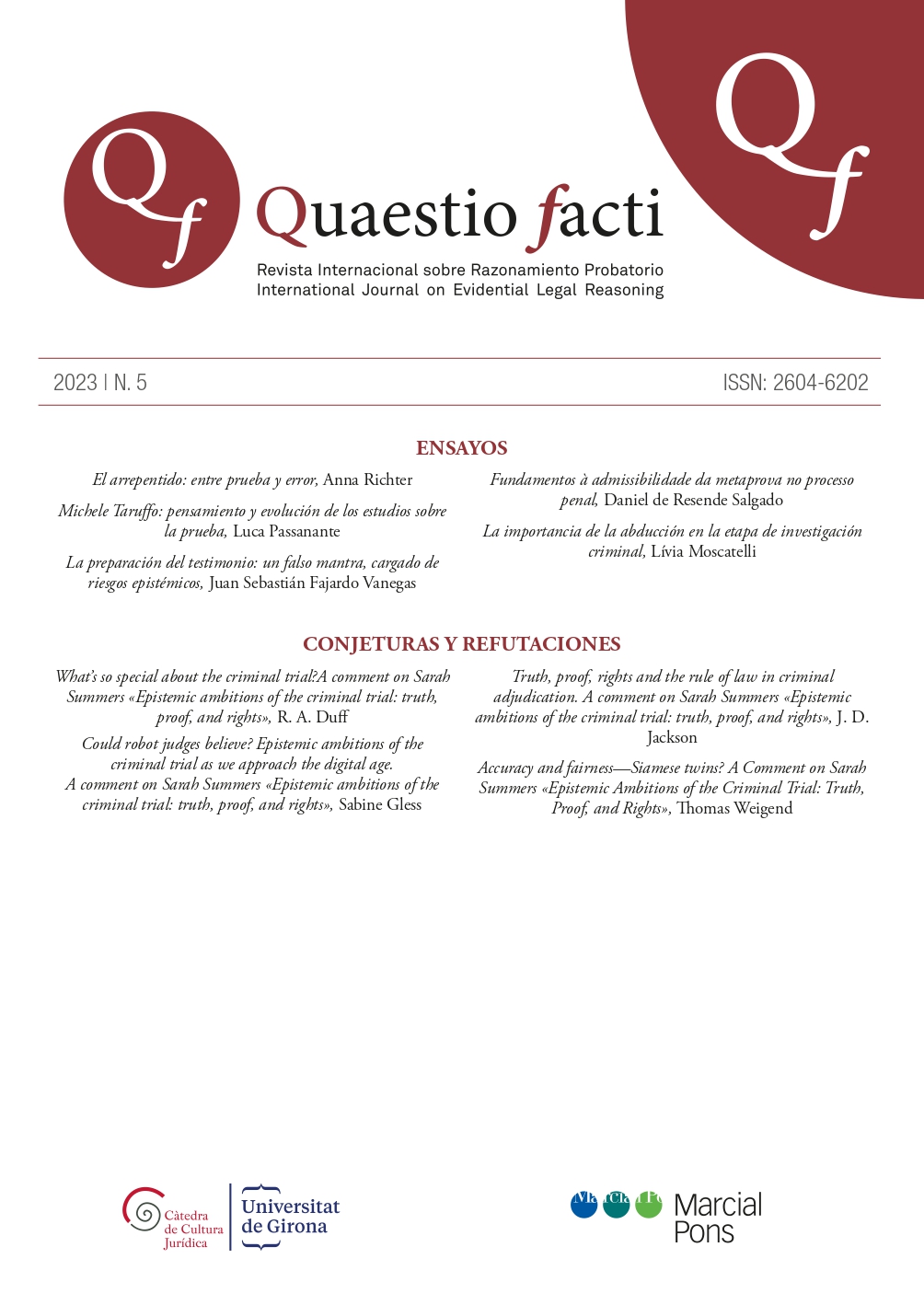
The crown witness between proof and error
Michele Taruffo: thoughts and evolution of studies on evidence
Witness preparation: a supposed mantra, full of epistemic risks
Fundamentals for the admissibility of metaevidence in criminal proceedings
The importance of the abductive reasoning in the criminal investigation
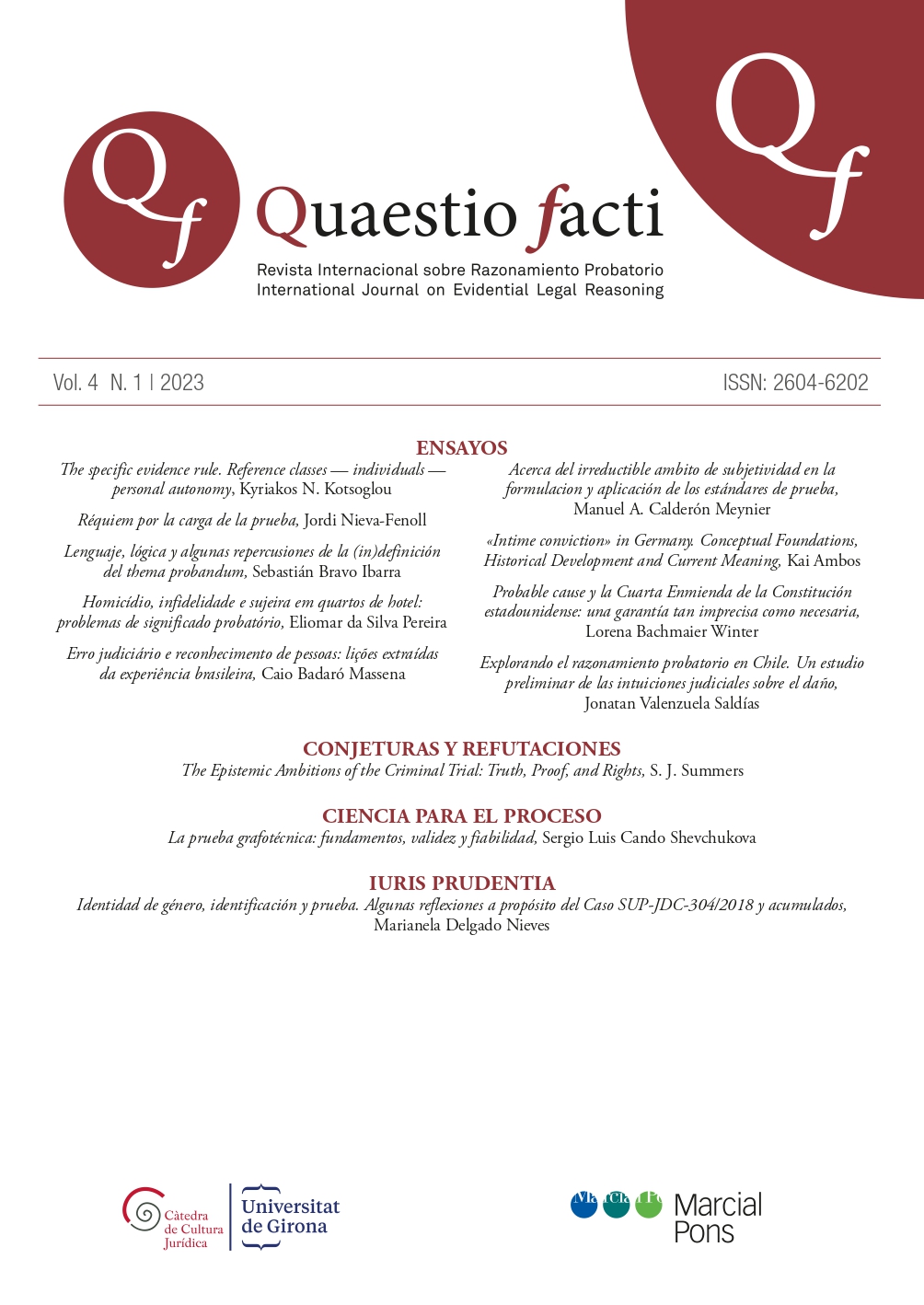
The Specific Evidence Rule. Reference Classes – Individuals – Personal Autonomy
Requiem for the burden of the proof
Language, logic and some repercussions of the (in)definition of thema probandum
Homicide, infidelity and dirt in hotel rooms: problems of probatory significance
Judicial error and eyewitness identification: lessons drawn from the brazilian experience
Intime conviction’ in Germany: Conceptual Foundations, Historical Development and Current Meaning
Probable cause and the Fourth Amendment: a much undefined constitutional safeguard
Exploring evidentiary reasoning in Chile: a preliminary study of judicial intuitions about tort
The Epistemic Ambitions of the Criminal Trial: Truth, Proof, and Rights
The graphotechnical test: fundamentals, validity and reliability
Proving gender identity. Some reflections on the case SUP-JDC-304/2018 and others

Philosophy of Mind and proof of mental facts
Epistemic Justification, Robust Evidentialism, Legal Proof
"Let Me Cross the Wind With Documents": Proposals for Rethinking Documents Used as Evidence
The distinction between proof and preparatory access to information in civil procedure
Evidential Powers of Amparo Judges. A guarantor of the epistemic correctness of the facts
Naturalized Epistemology and the Law of Evidence: a Reply to Pardo, Spellman, Muffato, and Enoch
(Un-)Interpretability in Expert Evidence: An Inquiry into the Frontiers of Evidential Assessment
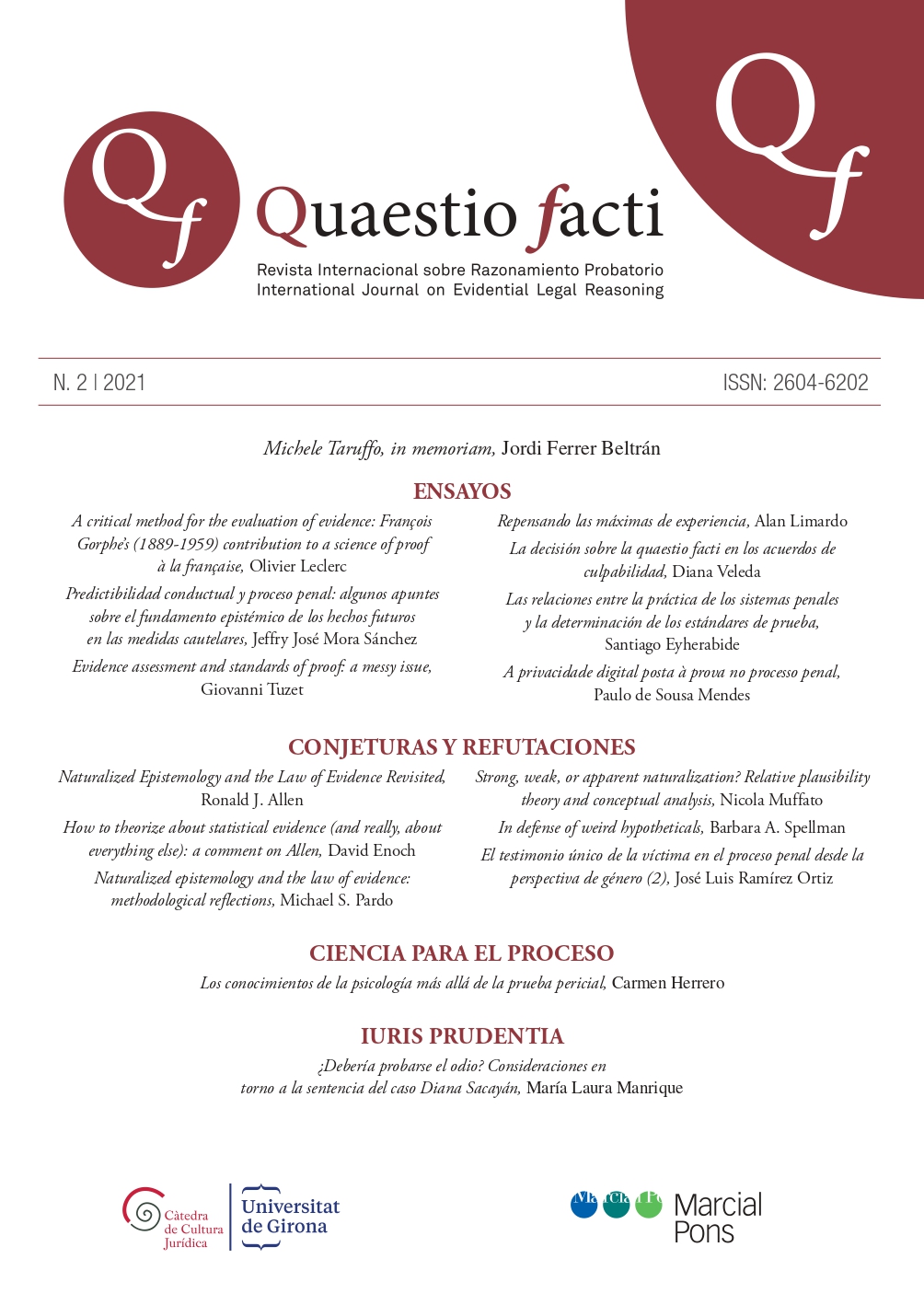
Michele Taruffo, in memoriam / La torre de Babel (castellano)
Michele Taruffo, in memoriam / The Tower of Babel (english)
Michele Taruffo, in memoriam / La torre di Babele (italiano)
Michele Taruffo, in memoriam / A torre de Babel (português)
Evidence Assessment and Standards of Proof: a Messy Issue
Rethinking «Maxims of Experience»
Deciding About Facts in Trial Avoiding Mechanisms
A privacidade digital posta à prova no processo penal
Naturalized Epistemology and the Law of Evidence Revisited
How to Theorize About Statistical Evidence (and Really, about Everything Else): A Comment on Allen
Naturalized Epistemology and the Law of Evidence: Methodological Reflections
Strong, Weak, or Apparent Naturalization? Relative Plausibility Theory and Conceptual Analysis
In Defense of Weird Hypotheticals
Contributions of Psychology Beyond the Expert Evidence
Should We Prove Hate? Some Comments on Diana Sacayán's Case
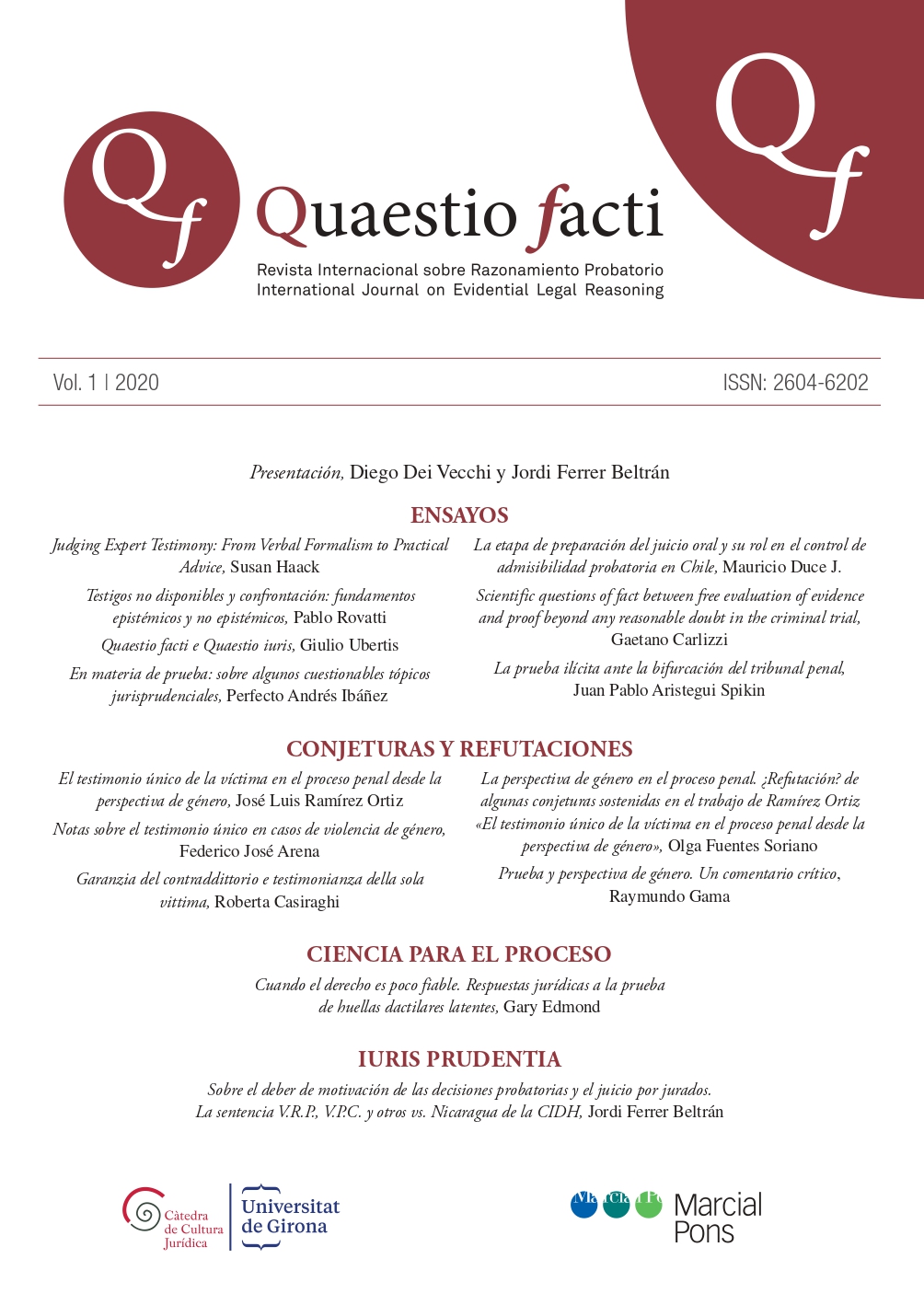
Judging Expert Testimony: From Verbal Formalism to Practical Advice
Unavailable witnesses and confrontation: epistemic and non-epistemic foundations
Quaestio facti e Quaestio iuris
Reading evidence: on some questionable case-law clichés
The preparation of trial stage and its role in the admissibility of evidence in Chile
Illegaly obtained evidence and the bifurcated criminal court
Single victim's testimony and gender perspective in the criminal procedure
Remarks on single testimony in cases regarding gender's violence
The guarantee of the adversary system and the single victim's testimony
A gender perspective on evidence. A critical asessment
Unreliable law: legal responses to latent fingerprint evidence